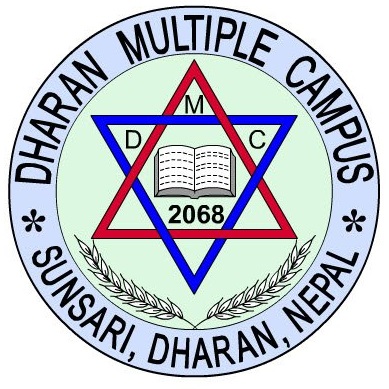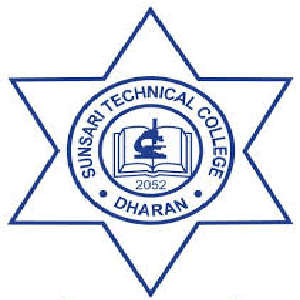Overview
B.Tech Food Technology Course Details at Nilgiri College, Itahari, Sunsari
Nilgiri College in Itahari, Sunsari, offers the B.Tech Food Technology course affiliated with Tribhuvan University (TU), Nepal. This course provides students with a clear understanding of food science and food processing. It covers various topics such as food safety, food engineering, quality control, and laboratory training. The curriculum, teaching methods, and support systems are structured to provide accurate, practical knowledge for those planning a career in the food industry. Primary keywords include "B.Tech Food Technology," "Nilgiri College," "Itahari," "Tribhuvan University," and "food science."
Overview
The B.Tech Food Technology course at Nilgiri College is a four-year program designed for students interested in the scientific prospect of food production. The course covers the principles of food processing, the role of nutrition, and the safety measures involved in food handling. Students study topics ranging from the chemistry of food components to the latest food preservation and packaging practices. The program prepares individuals for work in laboratories, research facilities, and the food manufacturing sector. This information is intended to provide clarity and insight into the academic and practical aspects of the course.
Curriculum Details
Core Courses
The curriculum is organized into core subjects that build a solid base in food science. The courses include:
-
Food Chemistry: Learning the chemical composition of food, reactions during processing, and the effect of additives.
-
Microbiology: Studying the impact of microorganisms on food safety and the methods to prevent foodborne illnesses.
-
Food Processing and Engineering: Exploring techniques used in processing food, machinery operations, and process control.
-
Food Safety and Quality Control: Learning about safety standards, testing procedures, and quality management systems.
-
Nutrition and Dietetics: Examining the nutritional values of different foods and the principles of balanced diets.
-
Packaging and Preservation: Investigating the methods of preserving food, packaging technologies, and shelf-life estimation.
Specializations and Electives
While the program strongly focuses on core subjects, elective courses allow students to gain additional insights into specialized areas. These may include:
-
Food Biotechnology: An optional course that looks at the application of biological processes in food production.
-
Advanced Food Processing Techniques: A deeper look into innovative processing methods and modern equipment.
-
Sustainable Food Production: Exploring eco-friendly practices and the role of sustainability in the food industry.
-
Research Methodology in Food Science: Preparing students for research projects and practical investigations.
Objectives
The primary aim is to provide students with a clear understanding of food science and its practical applications. Specific objectives include:
-
Building foundational knowledge in food chemistry, microbiology, and engineering.
-
Offering hands-on experience through laboratory training and practical sessions.
-
Preparing students to apply scientific methods to improve food safety and quality.
-
Introducing current trends and modern techniques in food processing.
-
Encouraging analytical thinking and problem-solving through case studies and project work.
Scope
Graduates from the B.Tech Food Technology course have multiple career options within the food industry. They are ready to work in areas such as:
-
Food manufacturing and processing units.
-
Quality assurance and control laboratories.
-
Research and development departments.
-
Food packaging industries.
-
Regulatory and inspection agencies.
-
Nutritional planning and consultancy services.
The knowledge gained in this course allows students to contribute to improvements in food safety practices and innovation in food processing.
Learning Outcomes
Students completing the course are expected to achieve the following outcomes:
-
Technical Proficiency: Develop a solid understanding of the scientific principles behind food processing and preservation.
-
Analytical Skills: Learn to identify and solve problems related to food quality and safety.
-
Practical Competence: Gain experience using modern food processing equipment and laboratory techniques.
-
Research Ability: Understand the basics of research methodology applicable to food science studies.
-
Industry Awareness: Acquire insights into current industry standards, regulatory requirements, and emerging trends in food technology.
Skill Development Modules
The program includes modules that help in building essential skills for the food industry:
-
Laboratory Skills: Emphasis on hands-on training in controlled environments where students work with modern equipment.
-
Data Analysis: Training in data collection, analysis, and interpretation, which is vital for quality control.
-
Problem-Solving: Practical exercises designed to tackle real-life food processing and safety issues.
-
Team Collaboration: Group projects and lab assignments that enhance communication and teamwork skills.
-
Technical Writing: Guidance on documenting experiments, preparing reports, and presenting findings.
Teaching Methodology
Teaching methods at Nilgiri College are structured to support both theoretical learning and practical application. The course includes:
-
Lectures: Delivered by experienced faculty members who cover theoretical aspects and contemporary issues.
-
Laboratory Sessions: Regular lab work to provide students with experience in food analysis and processing techniques.
-
Workshops and Seminars: Occasional events where industry experts discuss practical challenges and innovative solutions.
-
Case Studies: Real-life examples in classroom discussions link theory with practical scenarios.
-
Project Work: Final-year projects that allow students to conduct independent research and report on findings.
Faculty Expertise
The college employs educators with extensive experience in food technology. Faculty members are professionals who have worked in academic and industrial settings. Their practical experience and academic knowledge help students understand how theoretical principles apply to real-world scenarios. The faculty's guidance is focused on improving technical skills and industry awareness.
Admission Requirements
The admission process for the B.Tech Food Technology course at Nilgiri College follows the standards set by Tribhuvan University. Prospective students should meet the following requirements:
-
Educational Qualification: Completing higher secondary education (10+2) focusing on science subjects.
-
Entrance Examination: Successful performance in the entrance examination administered by the college or relevant authorities.
-
Documentation: Submission of academic records, identification documents, and other required certificates.
-
Interview: Some candidates may be called for an interview as part of the selection process.
Career Opportunities
Graduates of the B.Tech Food Technology course can pursue various roles within the food industry. Job roles include:
-
Food Technologist: Working in food manufacturing units to develop and improve food products.
-
Quality Assurance Specialist: Ensuring that food products meet safety and quality standards.
-
Research Scientist: Participating in research projects on food safety, new processing techniques, and product development.
-
Regulatory Affairs Officer: Monitoring compliance with food safety regulations and industry standards.
-
Production Manager: Overseeing the production process in food processing plants.
-
Nutritional Consultant: Advising on diet and nutrition based on scientific principles.
The diverse career paths reflect the practical nature of the course, which prepares graduates to contribute to various aspects of food production and safety.
Student Life and Extracurricular Activities
Student life at Nilgiri College includes a combination of academic pursuits and extracurricular activities. The college encourages participation in activities that complement the educational curriculum, such as:
-
Workshops and Guest Lectures: Regular sessions where professionals from the food industry share insights.
-
Laboratory Clubs: Groups focused on practical experiments and research projects.
-
Cultural and Sports Events are opportunities for students to participate in various activities, which contribute to their overall development.
-
Technical Competitions: Events that challenge students to apply their knowledge in practical scenarios.
These activities provide students with a balanced educational experience supporting academic and personal growth.
Scholarships and Financial Aid
Nilgiri College offers various scholarships and financial aid options for eligible students. These programs support those who demonstrate academic excellence or financial need. The college provides information about available scholarships, application procedures, and deadlines through its official channels. The financial aid programs ensure deserving candidates have access to quality higher education without undue financial burden.
Why Choose This Course?
The B.Tech Food Technology course is structured to clarify the scientific and practical aspects of food processing. Students learn about key topics such as food safety, quality control, and modern processing methods. The course suits individuals seeking to build a career in the food industry and want to contribute to improving food production practices. With a focus on practical laboratory work and real-world applications, the course supports the development of skills necessary for a future in food technology.
Why Choose This College?
Nilgiri College offers a focused learning environment in food technology. Its affiliation with Tribhuvan University ensures that the course meets national academic standards. The college maintains a straightforward approach to education, providing clear and direct instruction on food science and processing. With experienced faculty members, well-equipped laboratories, and a range of student support services, Nilgiri College is a reliable choice for those interested in pursuing a career in food technology.
Conclusion
The B.Tech Food Technology course at Nilgiri College, Itahari, Sunsari, presents a clear path for those interested in the scientific study of food production. Affiliated with Tribhuvan University, this program covers essential subjects such as food chemistry, microbiology, food processing, safety, and quality control. It offers practical laboratory training alongside theoretical learning, ensuring students are well-prepared for the challenges of the food industry.
















